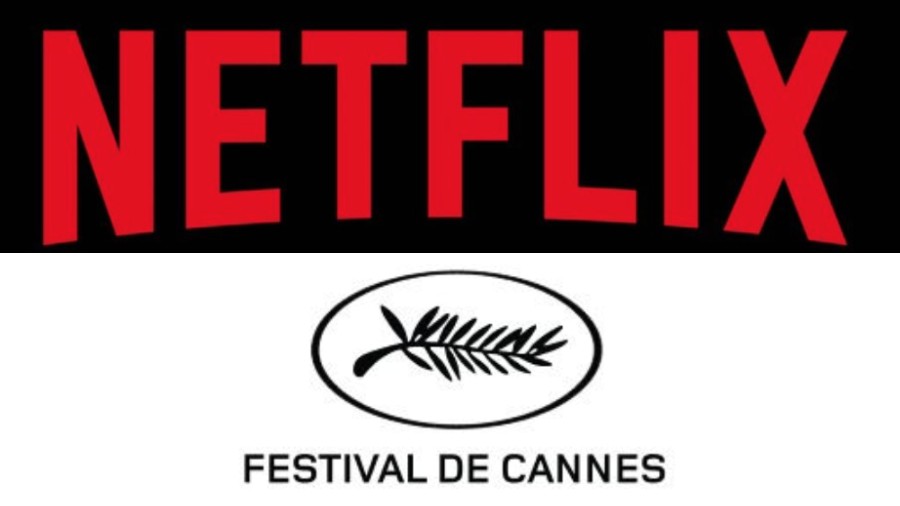The Ultimate Tug of War: Netflix Versus Theater Owners

Last weekend, Netflix chief content officer Ted Sarandos announced the company's move into the film domain. Accusing theater owners of potentially killing the movie business, he will attempt to release "big" studio movies on Netflix the same day and date...meaning the same day as their theatrical release. Needless to say, John Fithian, CEO of the National Association of Theater Owners (NATO) is fighting back.
Sarandos claims that theater owners are "strangling innovation," and if they would just "give the consumer what they want, they will show up." Netflix is no stranger to feeding into what the consumer wants and turning a profit. But can movie theaters relinquish control of a film's release and yield the same results?
Not if you ask John Fithian. He strongly believes that Netflix is responsible for the demise of the DVD business and now Sarandos will also be the one to kill movie cinema. Fithian, in retaliation, is accusing Netflix of being "inflexible with shrinking theatrical windows" and that "it makes absolutely no business sense to accelerate the release of the lowest value in the chain.”
I'm not so sure Netflix is the lowest value in the chain anymore...
As of this year, Netflix holds 40 million subscribers, in 41 countries, streaming 5 billion hours of movies and television shows around the world. Seventy percent of those hours are now television. Today, Netflix is watched for more hours than any cable television network. In just eight years, Netflix has gone from an industry outsider to industry inside and stunned the entertainment world with it's foray into original programming, "House of Cards." This became the first show not aired on a network or cable channel to win an Emmy.
According to Sarandos, the "release cycle" of movies is the problem and the reason why television is surpassing film on every level. When it comes to television, "never has it been more accessible, more plentiful and of more high quality." The next step for Netflix is to extend their TV model to movies. "Why not premier the movie on Netflix the same day it opens in theaters?" He urges theater owners to try it out and warns against making people wait. Consumers are going to find a way regardless, they always have. Sarandos adds, "in every wave of technology - there is a war - the keeper of the old thing digs in and holds onto it" but the change is inevitable.
Trying to control the window of a films release is only going to hurt the business.
So the real problem seems to lie between the studio and their exhibition partners. Studio's don't want to wait months and months after a films theatrical release to re-market a film back to VOD. Fiscally, it does not make sense. The audience will forget about the film that came out six months ago and studios will have to spend more money to bring the awareness back. To resolve this, studios have been trying to close in on this window so movies could move more quickly to VOD. However, theater owner's aren't cooperating so easily, coming from a generation where they had this window exclusively. Now they are expected to share that window, not only at an earlier date but at the same time as Netflix? It's no wonder they won't back down. Especially after they have just spent the past decade revamping and upgrading theatres all across the country in the wake of 3D and IMAX. It's understandable why they are so protective of their business. But the storm is still coming. While the studio's bury their heads, trying to figure out how to compromise with distributor's, they might be missing the biggest opportunity - or biggest competition of all.
Netflix hasn't been waiting around for this to resolve itself. They now plan to finance, produce and distribute their own films - with or without Hollywood - and why not? Sarandos describes this current time as, "The Golden Era of TV" with real talent crossing over from film to television, and happy to do so. With the success of "House of Cards," starring Kevin Spacey, executive produced by David Fincher and the pilot also directed by Fincher, who's to say that Netflix can't package an all star team and distribute a blockbuster movie? This wouldn't be the first time they left the studios in the dust. When Netflix initially had the idea to stream film and television content on the internet, studios turned their backs, refusing to hand over any licensing. Netflix then provided a delivery service that brought movies via DVD to the home instead. Ultimately, this just sped up the digital process for Netflix by bridging that gap to new technology, all the while tanking video stores. One can only hope this doesn't happen to movie theaters.
Here's Ted Sarandos' full speech:
At the end of the day, as it's been said before, consumers want options and eventually audiences will be able to watch any movie - big or small, from any device at any time - including the same day as the films theatrical release. And it will be on Netflix. Hollywood needs to take notice; studios might want to take a second look at their development slate and capitalize on those films that are meant to be experienced on the big screen, only. Like Steven Spielberg pointed out over the summer, "there might be an implosion of the film industry on the horizon and the distribution model of movies is going to change." It looks like the sun is coming up at Netflix.
Tags
Get Our Screenwriting Newsletter!
Get weekly writing inspiration delivered to your inbox - including industry news, popular articles, and more!


























